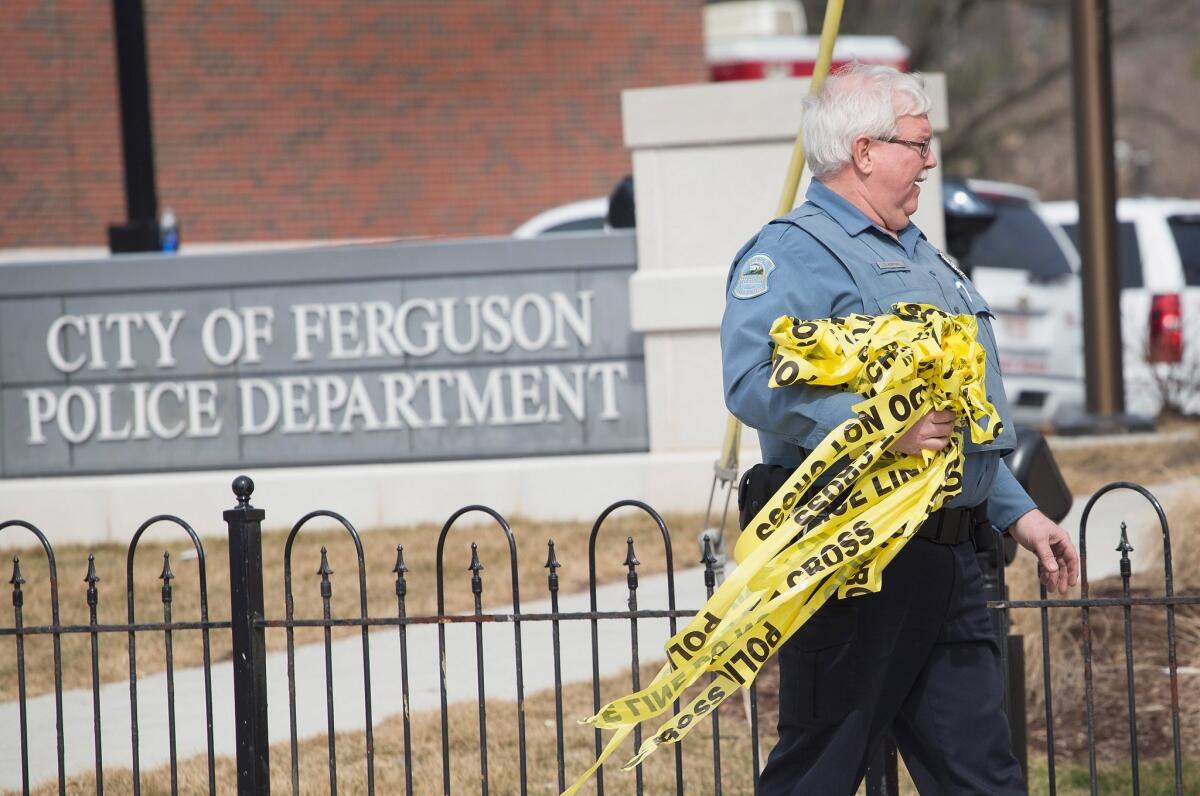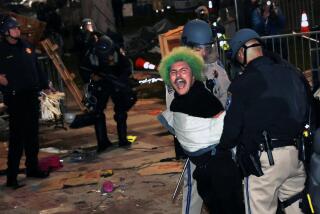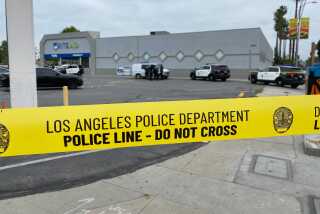Editorial: In Ferguson, a reminder of the dangerous job police have

- Share via
The shooting of two police officers early Thursday at the close of a protest at police headquarters in Ferguson, Mo., is a reminder to the public at large that officers put their lives on the line daily and that criminals target them.
Police, of course, need no such reminder. They are no doubt mindful that their jobs include an element of danger unimaginable to people in most other occupations. That danger is obviously enhanced in the course of an arrest, but officers know they may also be attacked by deranged or simply cruel and senseless people during peaceful protests, as in Ferguson, or indeed at any time, as in the case of two New York officers slain in December while sitting in their patrol car in Brooklyn.
Some news reports described the Ferguson protest as having turned violent. It appears, however, that the protest, although sometimes angry, remained peaceful and was hijacked by someone firing from a distance.
But angry protests do have the potential to turn violent, just as they can provide cover to criminals. When they do, they have the potential to grant would-be killers a moment of unearned power to thwart progress toward better, smarter policing and better, safer relationships between law enforcement and the communities that officers patrol and protect — and power as well to turn peaceful but productive conflict into a standoff between officers hardened by attacks on their colleagues and protesters still outraged over police killings of unarmed African American suspects.
Responsible parties on all sides of the nationwide confrontation and dialogue over policing — protesters, officers, commentators — ought to work mightily against granting violent criminals that power. Protesters should note that the movement they have created has borne fruit in the form of a Justice Department finding that Ferguson’s police department has engaged in racial profiling and other practices that are unjust to African American residents and visitors and that ultimately endanger not just suspects but officers as well, and that other departments in other cities are paying attention.
A program for remedying those problems is likely to be presented this year — and, if it is successful, should result in a police department better able to walk the line between responsible and oppressive policing, and one with a more productive relationship with the people it serves. It would be a shame to allow the brutal attacks on police, and the increased tension they inevitably will cause, to divert attention from that reform process.
Follow the Opinion section on Twitter @latimesopinion and Facebook
More to Read
Sign up for Essential California
The most important California stories and recommendations in your inbox every morning.
You may occasionally receive promotional content from the Los Angeles Times.










